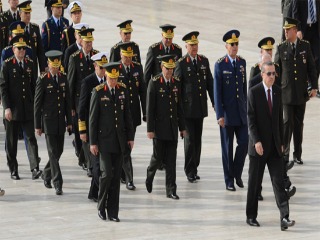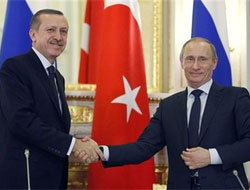The Crimean Crisis: Turkey’s Priorities Differ from the Western Powers
By Kemal Kaya (vol. 7, no. 6 of the Turkey Analyst)
Turkey’s dependence on Russia in terms of its energy needs, as well as the other, important economic ties impede Turkey from rallying to a Western policy of isolation and stronger economic sanctions toward Russia. Although Turkey has in its official rhetoric joined the international chorus in stating that the Russian takeover is illegal, in practical terms, Ankara’s position is much more ambiguous. Indeed, it can be argued that Turkey has de facto accepted Crimea’s absorption by Russia. Turkey does not have a great stake in Crimea, but fears a possible escalation of tensions in the Black Sea region that lead to the military option being put on the agenda. If that were to happen, Turkey would find it impossible to maintain its current stance of balancing adherence to the Western alliance –in rhetorical terms – and its economic and energy dependence on Russia.
United against the West? Erdogan and the Turkish generals
By Halil M. Karaveli (vol. 6, no. 19 of the Turkey Analyst)
The Turkish decision to choose a Chinese anti-missile system demonstrates Turkey’s ambition to forge an independent defense identity. It is another indication that the ruling Islamic conservatives do not feel indebted to the United States. But the decision is also a reminder that the Turkish generals no longer do America’s bidding. Western policymakers who are angered by the Turkish decision to go Chinese in missile defense would do well to ask if the assumptions that have guided their policies toward Turkey during the last decade may have been flawed.

The Turkey Triangle: Ankara, Moscow, Tehran
by Richard Weits (vol. 6, no. 7 of the Turkey Analyst)
Turkey has been using its energy and economic links with Russia and Iran to manage their political differences. Turkey’s relations with Russia improved considerably during the past decade, but those with Iran saw only a modest upturn due to enduring differences over regional security and religious-ideological principles. But in the past year, Turkey’s diverging response to the Arab Spring and especially the Syrian Civil War has strained both partnerships. No one talks anymore of an emerging Turkey-Iran-Russia axis in the heart of Eurasia.





